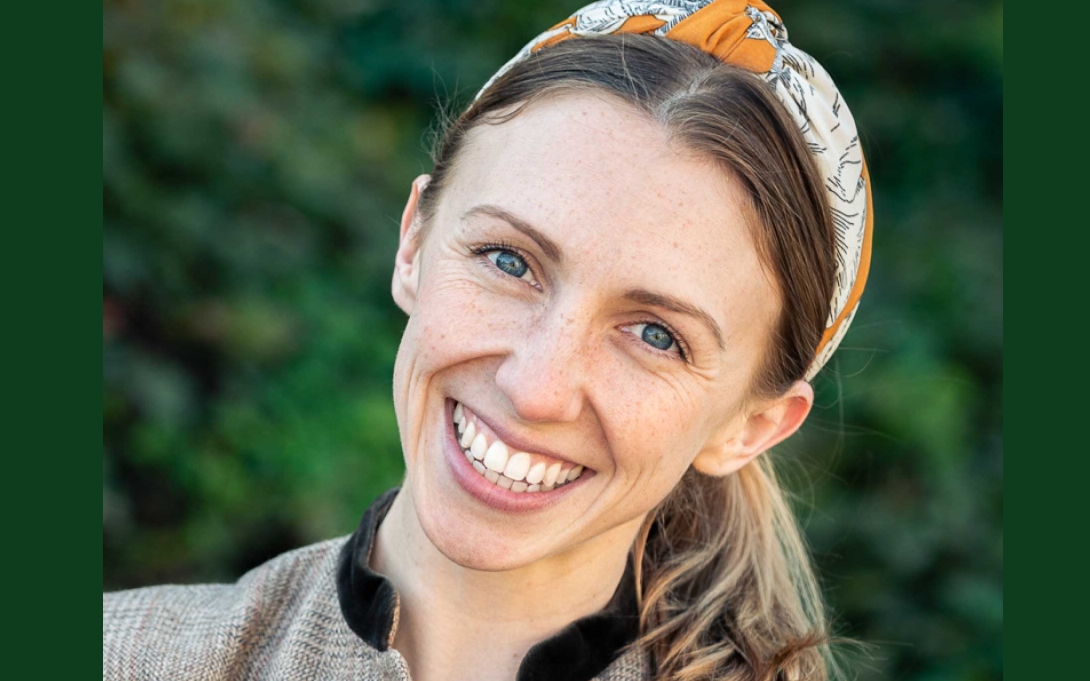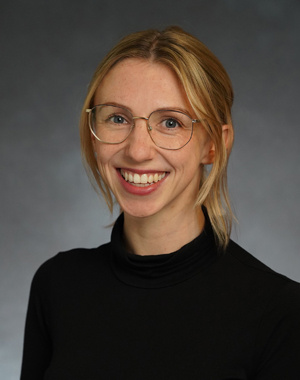
Catherine Summers is a postdoctoral fellow with the Ford School’s Leadership Initiative and the Erb Institute for Global Sustainable Enterprise at the Ross School. She is an organizational psychologist who is passionate about assisting leaders and organizations in navigating the nexus of environmental sustainability and justice. Prior to completing her PhD at the University of Virginia, she worked in environmental non-profits, managing corporate donors and working with campaigners on award-winning sustainability projects.
Q: You’ll be teaching PubPol 475: Intro to Leadership this fall. Can you tell us more about the course?
Yes! I am eager to launch the new Intro to Leadership course for undergraduates, which is based on the very popular graduate course taught by Professor Morela Hernandez. Students will learn fundamental leadership concepts and skills while also developing a deeper understanding of who they are and how they show up as leaders. Our sessions will be experiential and thought-provoking. My main goal is for students to walk away with a toolkit that will help them make a positive difference in the world.
Q: How does your experience working with environmentally focused non-profits inform your work?
As anyone in the non-profit space will tell you, that work is tough! You jump into wonderful, passionate teams dedicated to making the world a better place, and then there are gaps, needs, and opportunities all over the place. I saw this both in Canada’s largest and Canada’s smallest environmental non-profits. Things were always shifting, and while this meant I got to hone my skills as an arranger—doing things in the most productive way and then re-arranging as the context changed—it opened my eyes to the many interconnected, systemic issues the world is facing, and how little we know about them.
Q: What are you researching right now? What research questions are you excited about?
I love this question, in part because my answer can change day by day. Broadly, I research how organizations can help move society toward a just and sustainable future. And within that there are myriad questions and lenses and methods I use. Yesterday, I finished analyzing data from experiments on workplace biases against non-native English speakers. Today, I am integrating macro-level management research on justice with social science research. And tomorrow I am planning on writing a summary on my research on environmental justice. Because of my never-ending curiosity and love for ideas and learning, they all excite me.
Q: In a recent paper/presentation for the Academy of Management, you addressed the question, “Can you combat environmental racism without talking about race?” Why is this an important question, and what can you tell us about your findings?
This is a project that I feel personally and professionally linked to. Environmental justice (EJ) is such a key part in our society becoming more sustainable and just. In the paper, I discuss the roots of the EJ movement, which are deeply embedded in the civil rights movement, and theorize on the power structures that may have driven the reframing of the social movement. The project is still underway, but I can share that my initial findings support that 1) it is a complex issue and 2) we should all keep a critical lens on the “traditional” environmental movement.
Q: In addition to organizational psychology, you bring a background in civil and environmental engineering. How do these interdisciplinary skills help you in your current role?
My PhD was interdisciplinary, and although most of my training was in business and social psychology, I did have to take a few engineering courses. I had to work HARD to study such different fields, but that hard work and perseverance is something I will always carry with me. I also learned that the human element is so often missed, and therefore valued, in engineering and other tech-focused systems. I have a natural skill for identifying and relating to the human-side of problems, and that was a huge strength to have and hone in those spaces.
Q: How can students engage in your work?
Both the Ford School’s Leadership Initiative and the Erb Institute have an exciting line-up of events students should check out! Other than that, students are welcome to reach out to me anytime.

